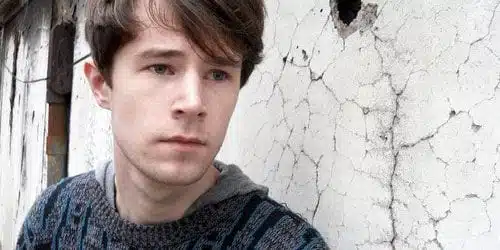
Decoding the electronic music of Polish native Derek Piotr is the equivalent of trying to figure out what all those strange sounds one hears when being sleeping for the first time in a place one has never been. The noises from the pipes and climate control, the voices from a distant radio, television or even human communication, the sirens, screeches and traffic sounds — everything seems a little off. One finds order in the chaos. Are those church bells? An electric saw? Insects unaware of the vibrations they are making? One can never be sure. The results come off as unfinished compositions that can never be completed because of their transient character.
Sure, there are serial repetitions, but this music is more abstract than the compositions of Steve Reich or Phillip Glass. And yes, there are elements of chance, but this is much more industrial than Eno or John Cage. Plus the recording equipment becomes an instrument itself. Piotr manipulates sounds as much as he just lets them be. The layers of stuff — from human voices to static to electronic noises to foot tapping — convey a restless intelligence.
On tracks like “Deliver” — one hesitates to call it a song despite its relatively brief four-minute length, occasional lead and choral accompaniment with identifiable lyrics, and percussive underbelly — Piotr seems to be taking one on a winding walk through a nameless city. There are landmarks, but they never seem to help locate you. The tall buildings are just the ones that are in every place. The roads and alleys don’t match one’s mental map of where one thinks one should be. But nobody accosts you and asks what you are doing in a strange place. You are just in the indifferent world.
Other cuts, such as “Will Rise (With Love)”, work the same plodding rhythms and vocals for a different reason. This time they suggest a search for connection and offer the hint that this may be fulfilled. The stray sounds that creep in and out of the composition have a friendlier sensibility. They are higher pitched and shorter in length. This creates a reflective atmosphere. The music becomes ephemeral and more a part of the environment. One can easily forget one is listening. The composition ends on a positive note. “We will love you,” Piotr sings in a breathy voice. Who “we” could be is never clear.
Piotr’s experimental jams are not for everyone. Most of the material here is meant to disturb more than soothe. Electronic scratches, hiccups and unpleasant grumbles abound. There are natural elements blended in the material, but they sound more like that of an electrical storm than the gentle breeze. It’s the wind that blows litter on the curbside, not the one that moves the leaves on the trees.
Remember that life is largely unpleasant. Most of us live and work in artificial conditions, under fluorescent lights with canned air, and computer screens for company. The best we can hope for is that the light does not cause eye damage, the air not carry dangerous vapors and germs, the computer magically work. What passes for commercial music manipulates one into fake empathy and desire for some other place. Airing basically condenses those elements into sound compositions. It may not be ideal, or even real — but it reminds the listener of what we normally block out and asks us to hear it fresh again

